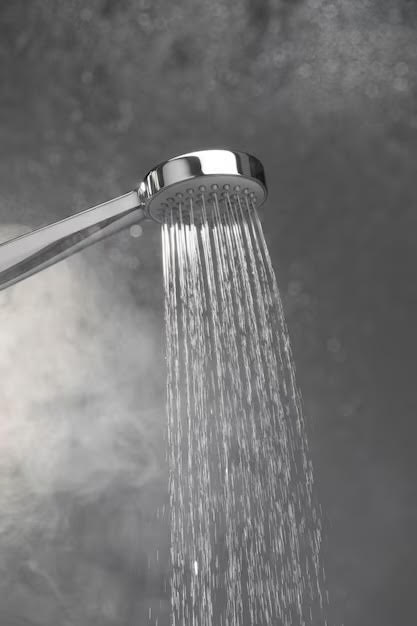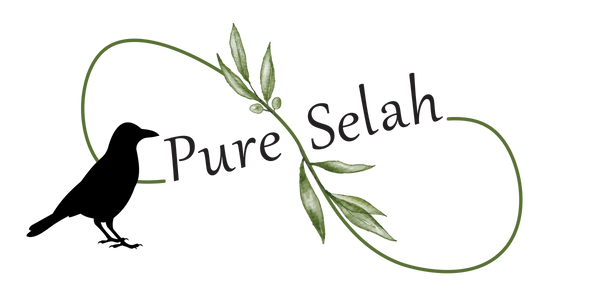
The Free Skincare Secret Nobody's Talking About
Aelisa DieckmannShare
|
|||
Imagine investing hundreds of dollars in luxury skincare products while unknowingly sabotaging your skin health every single day in the shower. That steaming hot shower that feels so good after a long day might actually be one of the biggest culprits behind dry, irritated, and prematurely aging skin.
The good news? This solution won't cost you a penny! Simply turning down your shower temperature could be the game-changing skincare hack you've been looking searching for.
We've all been there - standing under a scalding shower, feeling the day's stress melt away as steam fills the bathroom. Heck, I even sell Shower Steamers that I love and recommend. Steamy, hot showers are comforting, it's relaxing, and unfortunately, it's terrible for your skin. Hot water might feel therapeutic in the moment, but it's actively stripping away the natural oils your skin needs to stay healthy, hydrated, and youthful.
Your skin naturally produces sebum - an oily, waxy substance that forms a protective barrier on your skin's surface. This barrier serves two critical functions: it locks in moisture and protects against environmental stressors. When you expose your skin to excessive heat, you are effectively washing away this protective shield,
The Science Behind Skin Barrier Damage:
Our skin barrier consists of lipids (fats) that hold skin cells together, similar to how mortar holds bricks in place. These lipids include ceramides, cholesterol, and fatty acids - all essential components for maintaining skin integrity and hydration. Hot water dissolves these lipids much more efficiently than cooler water, creating gaps in your skin barrier.
When your barrier function is compromised, two major problems occur: moisture escapes more easily and irritants penetrate more readily. This is why after a hot shower, your skin often feels tight, itchy, and uncomfortable - you've literally washed away your natural protection.
Signs Your Shower Is Too Hot
Not sure if your shower temperature is damaging your skin? Look for these telltale signs: • Skin feels tight or "squeaky clean" after showering
• Increased redness or flushed appearance
• Itchiness or irritation
• Flaking or peeling skin
• Exacerbation of skin conditions like eczema or rosacea
• Persistent dryness despite regular moisturizing
If you experience any of these symptoms, your shower temperature might be the culprit.
The Anti-Aging Connection The link between hot showers and premature aging is often overlooked, but it's significant. When hot water strips away your skin's natural oils, it triggers inflammation - the enemy of youthful skin. Chronic inflammation accelerates the breakdown of collagen and elastin, the proteins responsible for skin's firmness and elasticity. Additionally, when your skin barrier is compromised, it becomes more susceptible to oxidative stress from environmental factors like pollution and UV radiation. This increased vulnerability can fast-track the appearance of fine lines, wrinkles, and age spots.
The Ideal Shower Temperature So what temperature should your shower be? Dermatologists generally recommend lukewarm water - around 98°F to 105°F (36.7°C to 40.5°C), which is just slightly warmer than body temperature. At this temperature, you can effectively cleanse your skin without stripping away essential oils. A good rule of thumb: if your skin looks red when you step out of the shower, the water was too hot. And if your bathroom mirror is completely fogged up, that's another sign you need to dial down the temperature. It is more than just saving hot water for the next family member, although that is good, it is practicing good skin care.
Transitioning to Cooler Showers: A Gradual Approach
If you've been a hot shower devotee for years, switching to cooler temperatures overnight might feel like torture. Instead, try this:
1. Start by turning the temperature down just slightly from your usual setting.
2. Each week, lower the temperature a bit more until you reach lukewarm.
3. Consider ending your shower with a brief cool rinse - even 30 seconds can help close pores and boost circulation. Many people find that once they adjust to cooler showers, they actually prefer them. Your skin adapts surprisingly quickly, and the benefits become noticeable within days.
Beyond Temperature: Additional Shower Tips for Healthier Skin While temperature is crucial, other shower habits can impact skin health as well: • Keep showers short (5-10 minutes 1S ideal) • Pat skin dry instead of rubbing • Apply moisturizer immediately after showering while skin is still slightly damp • Consider installing a shower filter if you have hard water, which my area does. I really like this showerhead water filter,
Special Considerations for Different Skin Types If you have naturally dry or sensitive skin, or conditions like eczema or psoriasis, shower temperature becomes even more critical. I know when my girls had Molluscum contagiosum we worked really hard to make sure their shower temperatures were lukewarm or lower as not to dry out their skin an have them itching like crazy, further exasperating the problem. For these skin types, even lukewarm water might sometimes be too harsh. Experiment with cooler temperatures and shorter shower times to find what works for your specific needs. For those with oily skin, note that hot showers can actually worsen oil production. When hot water strips away natural oils, your skin often compensates by producing even more oil - creating a frustrating cycle. Moderate temperatures help maintain balance instead.
The Cold Plunge Alternative While we're focusing on the simple adjustment from hot to lukewarm, it's worth mentioning that brief cold exposure (like ending your shower with a cold rinse) offers additional benefits.
Cold water can:
• Improve circulation
• Reduce inflammation
• Tighten pores
• Increase alertness
• Potentially boost immunity Even a 30-second cold rinse at the end of your shower can provide these benefits without the discomfort of an entirely cold shower.
Cost Savings: An Added Bonus
Beyond the skin benefits, turning down your shower temperature saves energy. Heating water accounts for approximately 18% of home energy use, making it the second largest energy expense in most households. By reducing your hot water usage, you're not only saving your skin but also lowering your utility bills and reducing your environmental footprint.
The Simplest Skincare Revolution
In a world where skincare routines have become increasingly complex and expensive, there's something refreshing about a solution that's completely free and takes zero extra time out of your day. Simply turning down your shower temperature could have a more positive impact on your skin's health than many pricey products.
Remember that skincare isn't just about what you put on your skin - it's also about what you don't do to damage it in the first place. By making this small adjustment to your daily routine, you're addressing skin care at its most fundamental level: preservation of your skin's natural defenses. The next time you step into the shower, resist the temptation to crank up the heat.
Your future self - with hydrated, healthier, and more youthful skin will thank you for it.

